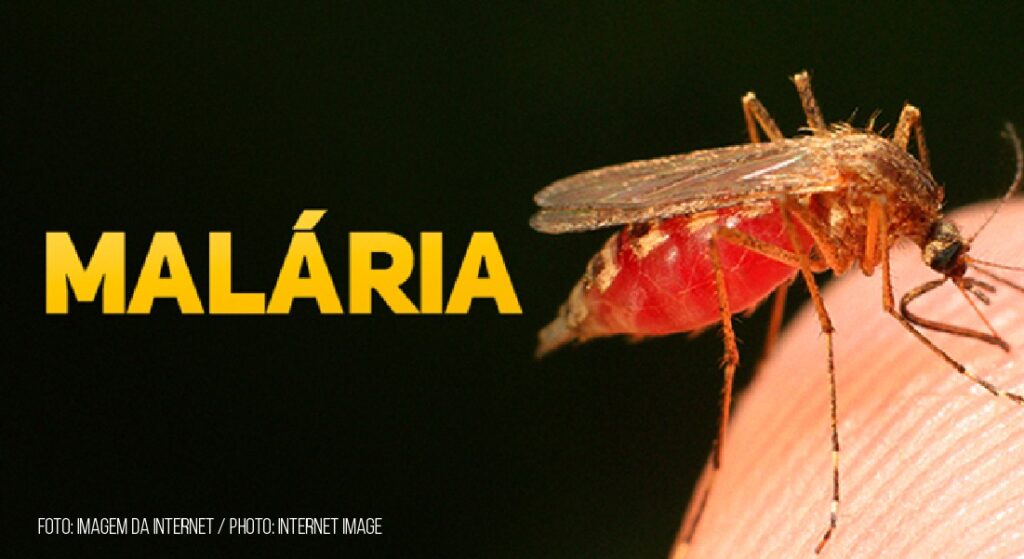
WHO report: Africa leads global increase in malaria cases
In 2022, 249 million cases of malaria were recorded worldwide
12/01/2024
In 2019, before the pandemic, the number of malaria cases worldwide was 233 million
The World Health Organization’s (WHO) latest annual report on malaria “ World malaria report 2023 ” revealed a worrying outlook for global health. In 2022, 249 million cases of malaria were recorded worldwide, 5 million more than in 2021. Of these, 3.2 million occurred in African countries: Uganda (0.6 million), Nigeria (1.3 million ) and Ethiopia (1.3 million). The others occurred in Papua New Guinea (0.4 million) and Pakistan (2.1 million). Disease incidence and mortality rates have increased around the world as a result of disruptions to malaria services during the pandemic. In 2019, before Covid-19, the number of cases worldwide was 233 million, a surplus of 16 million cases. In addition to the global impacts caused by the Covid-19 pandemic and the challenges commonly faced, such as resistance to drugs and insecticides, the document also highlighted humanitarian crises, resource constraints, impacts of climate change and delays in program implementation, particularly in countries with high disease burden.
Globally, the number of malaria deaths in 2022 (608,000) was higher than in 2019 (576,000), an increase of 5 million compared to 2021. The African region continues to bear the heaviest burden of malaria , being responsible for 94% of all cases (233 million) and 95% of all deaths (580 thousand deaths). Around 78% of all malaria deaths in this region affected children under the age of five.
Four countries, Nigeria (26.8%), Democratic Republic of Congo (12.3%), Uganda (5.1%) and Mozambique (4.2%), accounted for almost half of all malaria cases worldwide . Four other countries were also responsible for just over half of all malaria deaths in the world: Nigeria (31.1%), Democratic Republic of the Congo (11.6%), Niger (5.6%) and Tanzania (4 .4%). The majority of cases (82%) and deaths (94%) avoided were recorded in the African region, followed by the Southeast Asian region.
Meanwhile, in the 11 countries with the highest burden of the disease, rates of new infections and deaths have stabilized after an initial increase during the first year of the pandemic. These countries, following the WHO’s “High Burden for High Impact” strategy, reported approximately 167 million cases of malaria and 426,000 deaths in 2022. On current trends, progress toward the critical goals of the global malaria strategy of the WHO for 2025 is considerably compromised. In 2022, global investment in research and development of malaria products fell to US$603 million, which represented the steepest drop so far: US$73 million less than in 2021, the lowest funding in the last 15 years .
The report also mentioned progress toward eliminating malaria in many countries with a low burden of the disease. In 2022, 34 countries reported fewer than a thousand cases compared to just 13 countries in 2000. In 2023, three more countries were certified by the WHO as malaria-free (Azerbaijan, Belize and Tajikistan) and several more are on the path to eliminating the disease in 2024. The document also cited achievements such as the gradual implementation of the first malaria vaccine recommended by the WHO (RTS,S/AS01) in three African countries, which led to a substantial reduction in severe malaria and a 13% drop in deaths in early childhood. In October 2023, the organization recommended a second safe and effective malaria vaccine (R21/Matrix-M). The expectation is to increase supply and distribution on a large scale on the African continent, currently the hardest hit by the disease.
The success of these initiatives, combined with strategies such as the use of mosquito nets and insecticide spraying, offers an optimistic perspective in combating the disease. Furthermore, the WHO reinforces the need to continue investing in research, prevention and immunization to face this global challenge. A significant redirection of efforts to combat the disease is essential. Increased funding, political commitment, innovation and data-driven strategies are essential. Responding to climate change requires sustainable approaches and social engagement.
Brazil presents substantial reduction in cases in 2022
Over the past two decades, there has been a 64% reduction in malaria cases in the Americas region, while deaths have decreased by 60% during the same period. Despite progress, substantial increases in the incidence of the disease in Venezuela have affected the situation. Together, Venezuela, Brazil and Colombia account for 73% of regional infections. However, according to the WHO report, Brazil demonstrated a significant reduction in cases, with a drop of 28 thousand infections compared to 2019. It is estimated that there will have been around 150 thousand cases of malaria in Brazilian territory in 2022, as pointed out in the document. The data also reveals a decrease in the number of deaths in the country in 2022, with records of 50 deaths from the disease, compared to the 58 that occurred in 2021.
In relation to the Amazon region, which concentrates the majority of cases, the malaria fatality rate is low, around 0.04%. However, preliminary information from the Ministry indicates that, in other regions of the country, this lethality was around 23.25 times higher in 2021. The Amazon is considered an endemic area for malaria, being responsible for 99% of autochthonous cases in Brazil . The WHO’s goal is to reduce at least 90% of malaria cases by 2030 compared to 2015 and eradicate the disease in at least 35 endemic countries within seven years.
The Ministry of Health aims to eradicate malaria by 2035; To achieve this objective, it has implemented several strategies, including the incorporation, in July 2023, of tafenoquine into the Unified Health System (SUS). The medicine is used in cases of infection by Plasmodium vivax , the predominant species in Brazil and which represents 80% of cases. Furthermore, the Interministerial Committee for the Elimination of Tuberculosis and Other Socially Determined Diseases (CIEDS) was created. Led by Health, CIEDS will develop public policies to eliminate eight socially determined diseases by 2030. Malaria is on the list.










